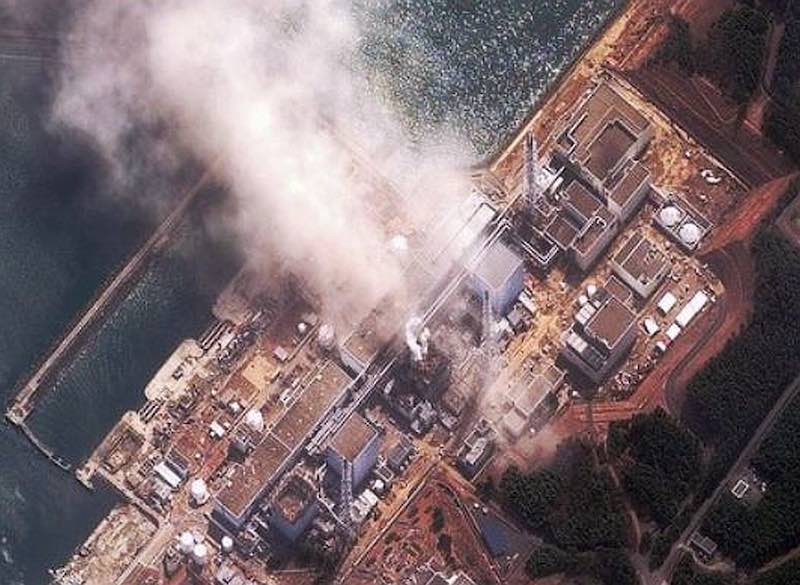It is now a dozen years since the world held its breath and learned to pronounce the word Fukushima.
On March 11, 2011, a massive earthquake and tsunami devastated large areas along Japan’s eastern coastline.
It also breached the safety and back-up systems of the Tokyo Electric Power Company (TEPCO’s) Fukushima Daiichi nuclear power stations, leading to a meltdown, mass evacuations, hundreds of billions of dollars in economic loss and the release of large volumes of radioactive contamination to the ocean and air.
More than $A120 billion has already been spent stabilising the stricken site, but the crisis continues today.
Following the disaster large volumes of radioactive water were collected and stored. This includes water used to cool nuclear fuel rods along with contaminated groundwater, rainwater and seepage water.
Between one and three hundred tonnes of water are collected each day and there are more than 1000 large tanks holding around 1.3 million tonnes of contaminated water on site.
TEPCO proposes to directly discharge this waste to the Pacific, starting later this year.
TEPCO intends to treat the water prior to discharge to remove some contaminants using a process known as the Advanced Liquid Processing System (ALPS).
This pumping and filtration process is meant to remove and dilute radioactive isotopes from the liquid, but some remain, in particular tritium.
There are concerns the proposed treatment also fails to deal adequately with other contaminants, including strontium, iodine and cobalt.
The proposed ocean dumping has horrified coastal and fishing communities in Japan and in Korea and China.
It is also a cause for growing concern and heartache among the wider Pacific community, given the adverse environmental and cultural impacts and the tension between the planned action and the prohibition of radioactive waste dumping in the South Pacific Nuclear Free Zone Treaty (1985).
The Pacific Islands Forum engaged an independent expert advisory panel to undertake a detailed assessment of the dumping plan.
This criticised the assumptions, data analysis and modelling underpinning TEPCO’s approach.
In August 2022 the advisory panel told the forum the plan was premature, lacked a sound scientific basis and should be postponed until there had been a detailed consideration of alternative options.
ACF, the Medical Association for Prevention of War and other civil society groups are urging the federal Labor government to add Australia’s voice to those calling for a halt to the current plan in favour of an evidence based and agreed approach to this pressing transboundary and transgenerational issue.
Pacific Islands Forum Secretary General Henry Puna said the ultimate goal must be ‘to safeguard the Blue Pacific – our ocean, our environment, and our peoples – from any further nuclear contamination. This is the legacy we must leave for our children.’
The Pacific is a place of richness, life and culture. It is not a sewer.
Many Australians are unaware of our country’s direct connection with this disaster.
In October 2011 it was formally confirmed to the federal parliament that Australian uranium was fuelling the Fukushima complex at the time of the disaster.
The then head of the Australian Safeguards and Nuclear Safety Office – a unit of DFAT charged with tracking Australian uranium – told a Senate Committee, “we can confirm that Australian obligated nuclear material {uranium} was at the Fukushima Daiichi site and in each of the reactors.”
Australian radioactive rocks are the source of Fukushima’s fallout and waste.
And large volumes of this waste are now planned to be directly released into the Pacific Ocean.
We cannot change the past, but we can act to shape the future.
The time is right for the Albanese government to join with the wider Pacific community and formally ask Japan to defer the planned direct ocean dumping of contaminated and instead look at alternative waste management options.
While our federal government has been quick to emphasise that Australia’s involvement in AUKUS does not signal a move towards domestic nuclear power or nuclear weapons, the partnership’s promise of nuclear-powered submarines poses new environmental and security risks to Australian ports, shipyards and seas – including the seas we share with our Pacific neighbours.
And nuclear power enthusiasts in the Coalition and on Sky News after dark continue to push for unpopular and unnecessary nuclear electricity.
Against the shadow of Fukushima, the latest pro-nuclear push in Australia is ill-judged, insensitive and wholly inappropriate.
Our future must be renewable, not radioactive.
Dave Sweeney is the Australian Conservation Foundation’s nuclear free campaigner










